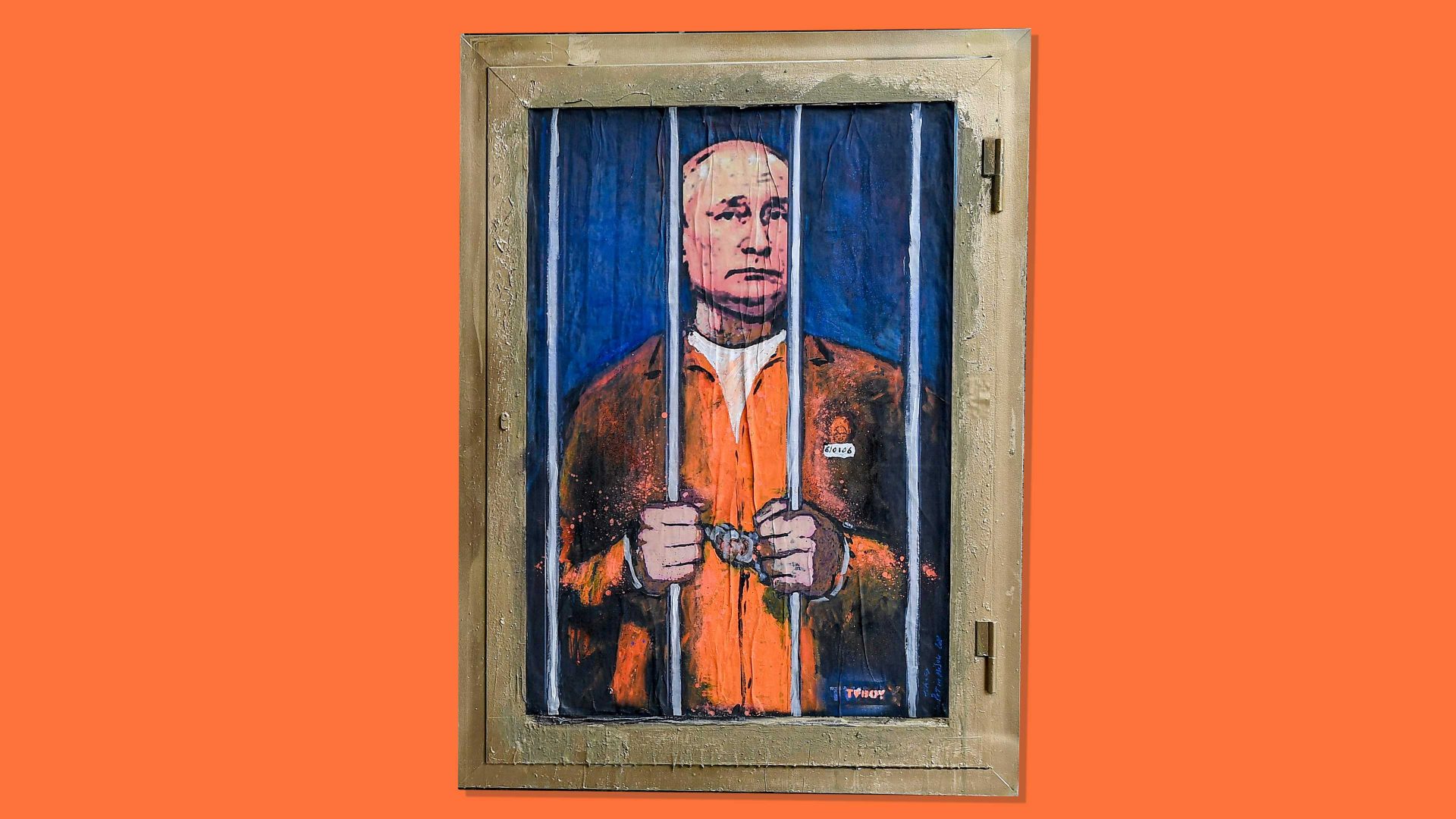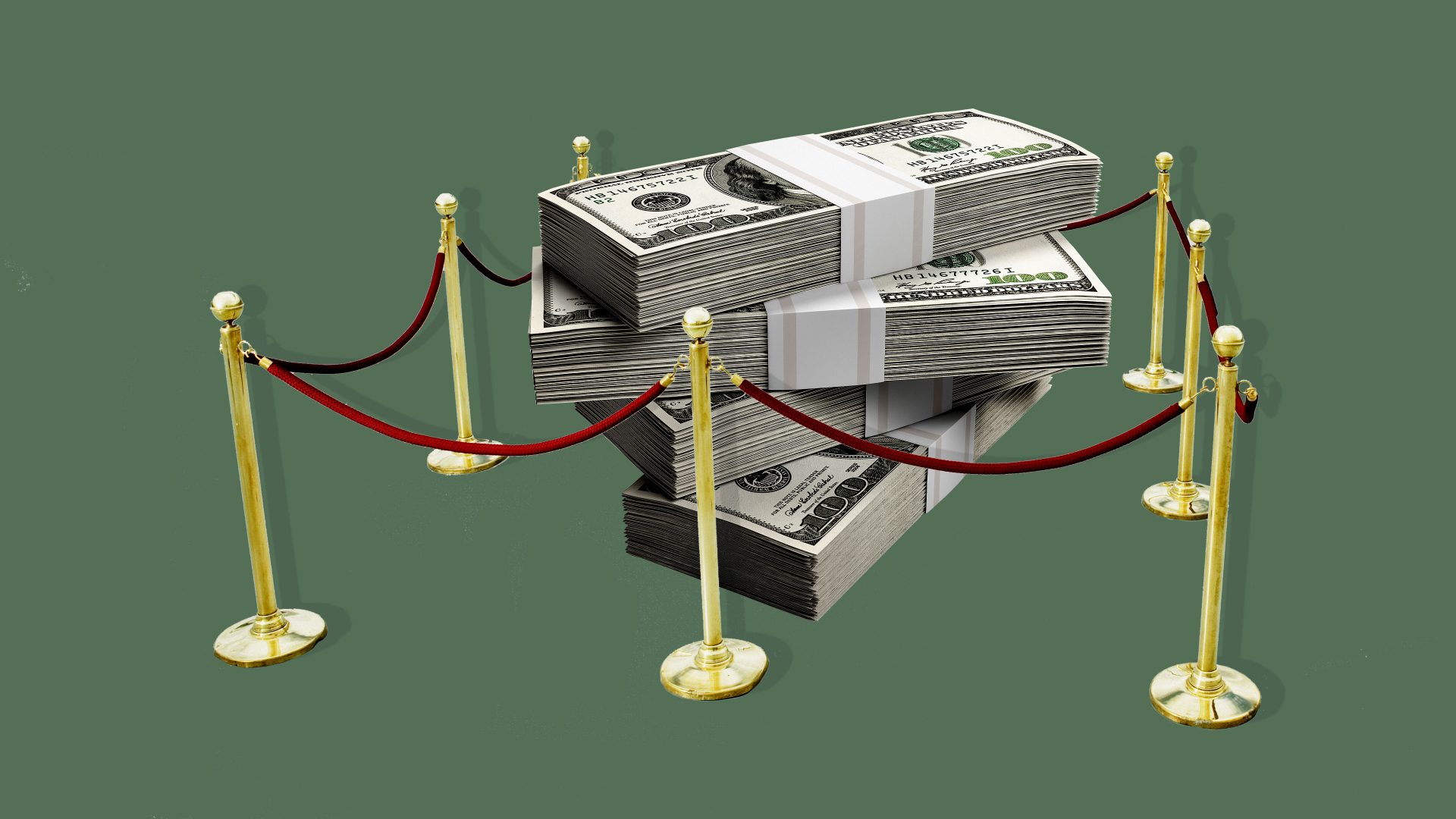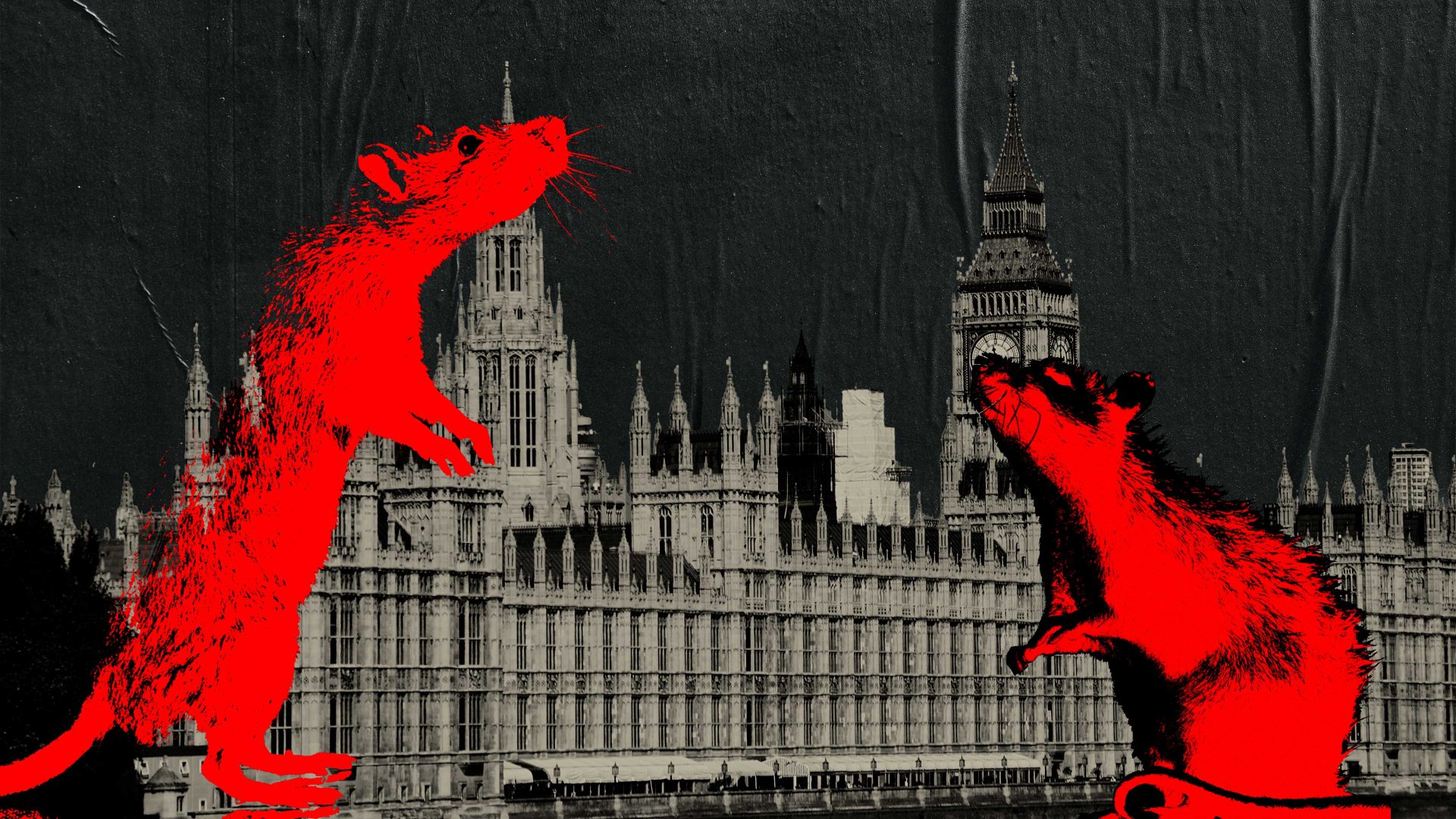On April 30, at an outdoor local election rally in Ahrensburg, hecklers managed to drown out the German foreign minister, Annalena Baerbock, using sirens. In Lubeck, her speech was cancelled after protesters sprayed butyric acid on the stage. But that was just a warm-up for Germany’s pro-Putin lobby.
On May Day, at a rally in Dusseldorf, the chancellor, Olaf Scholz, was assailed by hecklers chanting “warmonger”, and “peace without weapons”. He fought back, saying: “I respect all forms of pacifism, all views on this. But it must seem cynical to a Ukrainian citizen to be told to defend himself against Putin’s attack without weapons. That is totally anachronistic!”
What we’re seeing, in real time, is not just a battle for the political soul of Germany, but of Europe (see Tanit Koch, p13). And the participants are not just various factions within civil society, but the hybrid warfare apparatus of both Russia and China.
Last week it became clear that the US would plunge 100% into the task of arming Ukraine with enough weapons and ammunition to fight Putin to a standstill in the battle of Donbas. In response, Russian state media has switched from the narrative of hate speech and annihilation against Ukrainians, to hate speech and annihilation of the world.
The state TV channels are showing wall-to-wall motion graphics of what a nuclear attack on Britain would look like. As Scholz confronted the hecklers, Russia’s own May Day celebrations included an eerie trampoline show, under the ominous quote from Putin: “Why do we need a world if there is no Russia in it?”
Facing operational defeat in Ukraine – because it simply does not have the combat power to doubly encircle and destroy the Ukrainian forces in Donbas – Russia’s only route to a strategic victory is if Europe and Nato crumble under the threat of a nuclear armageddon.
On May 9, the Russian VE Day, I expect Putin will make the threats overt, backed by a parade of intercontinental missiles through Red Square. He may declare the total mobilisation of Russian society, a formal state of war with Ukraine, and reiterate the goal of occupying the country and demilitarising Eastern Europe.
That will pose existential questions in the mind of every thinking citizen of the West. If the sullen narcissist in the Kremlin is prepared to unleash nuclear winter and mass death on the western hemisphere, is there any principle worth defending at that price?
It’s a much more alarming question than the one that confronted people in the 1930s. Hitler threatened to destroy Jews, Gypsies, communists and disabled people, but not the whole of humanity.
Today, now that Putin has introduced the threat of nuclear annihilation into the matrix, I expect the voices clamouring for peace at any price to grow louder.
Some are non-spontaneous. On the fringes of the far left there are people with a fully theorised view of international relations that supports the vision of Xi Jinping and Putin: for a world governed by totalitarian, state-owned capitalists, who deliver economic growth to the people in return for the total absence of human freedom and individuality. Among fascists, and the conservative ultra right, there are numerous fully paid up proxies of the Kremlin.
In the next phase of the debate, the neo-Stalinist left will mobilise against arms to Ukraine, sheltering behind the rhetoric of a pacifism they have never believed in. Meanwhile, the populist right will mobilise anger over fuel and food price rises. It will be a loud and dangerous pincer movement – triggered at the precise moment Putin’s military pincer movement in the Donbas fails.
But let us understand where its strength will come from. There are millions of people who would run a mile from pro-Putin extremists, but who care less about Ukraine than about the cost of living; and who will readily buy the argument that “arms supplies only prolong the suffering”, because they fear nuclear escalation.
Those of us who want to go on supplying arms to Ukraine must accept the consequences. First, that, as per all the textbooks of deterrence, the US and its allies need to spell out clear and devastating consequences should Putin mobilise for the occupation of Ukraine and raise the readiness of his nuclear forces.
Second, we need to state the limits of the West’s ambitions: we do not seek regime change, or a repeat of the economic plunder and humiliation Russia experienced in the 1990s. Nor do we seek – as in Liz Truss’s crazed speech at the Mansion House – to build a “global Nato” – ie a global western military alliance to confront China simultaneously with Russia.
The third and most important task is to take the population with us. In the space of two decades Putin has moved his drama of urban devastation from Chechnya to Syria and now Ukraine. If he wins, Act IV will be played out in Eastern Europe, and Act V in your town. It will be your steelworks, your council flats, your nurseries flattened.
Putin does not seek peace and stability against the liberal, democratic societies we live in. He seeks their downfall. Ukraine has taught Putin a lesson that all history teaches us: an army of free people cannot be defeated by an army of slaves. The allure of freedom is strong, even in societies as controlled and surveilled as Russia and China.
Freedom, democracy and human rights are at stake. We didn’t choose that. But Scholz is right: Ukraine’s fight is about more than the technicalities of international law, or national self-determination. It’s about what kind of world we want to live in. Seventy days into the war, it is only now that most people are understanding the stakes.




